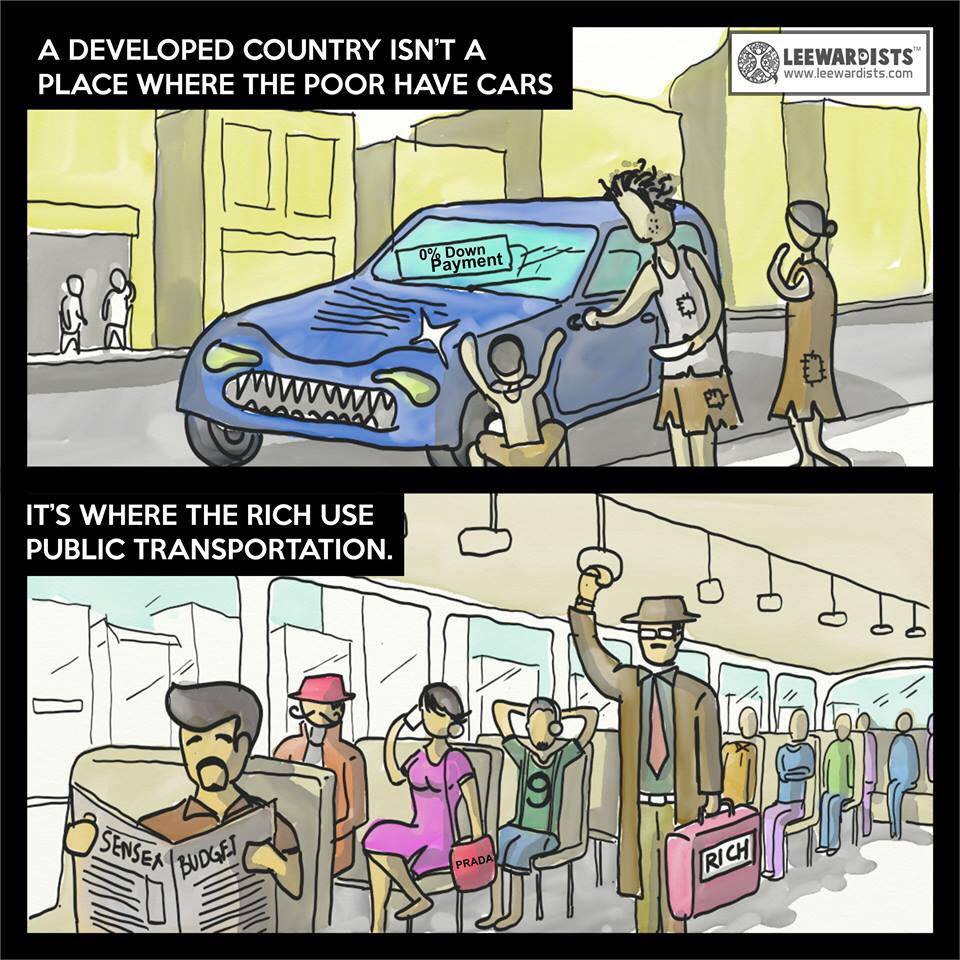The Story of Stuff Defines the Word “Developed”

According to Jack Davis, professor of Native American Studies at the U. California- Davis, Native peoples very quickly realized that the European settlers were infected with ‘wetico’, a mental illness in which you take more than you need. This certainly does pervade our society. People whose net worth is $100 million are desperate to become billionaires, even though the incremental utility of that additional $900 million is infinitesimally small in terms of the comfort it provides, especially when compared to buying $900 worth of food for one million hungry people.
From the time I was a small boy, my mother and I have been discussing this issue. Her points are:
Consumerism is what makes a civilization strong, and
Consumerism isn’t going anywhere; you (Craig) have no more power to move our society in a different direction than you do to make it stop raining.
Mom has some powerful arguments here, or at least she had, before our demand for stuff started to throw our environment off a cliff. Now, our big, powerful cars, our love affair with red meat, and so many other aspects of our throw-away lives have brought us to the point where our planet’s capacity to play host for humankind is in the process of hitting a wall.
We all know that living like pigs isn’t sustainable, and it really isn’t all that much fun, when considered fully. Maybe the next time we pull out our credit card, we should ask ourselves, “Do we really need this?”
Going back to the notion of a developed country, I’m reminded of something another hero of mine, Paul Hawken said, “It (environmentalism) is the largest movement in the world today, and, though it isn’t a way to get rich, it’s a way to be rich.”

Craig,
Your Mom is a very smart and wise person.
The most basic aspect of civilization is consumerism. Consumerism generates aesthetic economic surplus which is the foundation for all technology and human creativity.
On the other hand, ‘moralist’ and ‘puritans’ who disapprove of human individualism, wealth, creativity, variety and uncontrolled surplus have also always been among us.
I believe these people (whether they understand it or not) are rendered insecure and afraid by the cornucopia of human creativity and seek to limit, control or suppress the variety of human expression to gain a sense of security.
Over the eons these folk have used many devices, “morality’ religion, environment, etc, etc, to try an enforce their will on those who are not frightened by the variety of human aspirations.
But, it’s okay, after all, moralists, stoics, puritans, the merely envious, etc are all part of the passing parade of variety in the pageant of human life on this planet.
Environmental problems will be solve by human creative ingenuity, better technology etc, not a grim restriction on consumerism.
Vive l’difference !
(Incidentally, people with more than $100 million seldom see the acquisition of more wealth a money as an objective. Most wealthy people are simply absorbed in further developing the enterprises that are their passion ).
(Oh, and Jack Davis, Professor of Native American Studies at the U. California-Davis, opinions of “Native Americans” is very romantic and more than a little patronizing ! The US pre-European people were as varied and different as Europeans. Some were exceedingly acquisitive, while others were destroyed by new cultures which sprang up with the Spanish re-introducing the horse to the Americas.)
He is not saying that we all need ti be the same, but rather that we buy too many things. You don’t need more than 0 shirts that fit you, but a lot of people have hundreds of outfits, most of which are almost never worn. There’s nothing wrong with having a watch, but do you really need a 30000$ watch with diamonds and 24k gold?
Hi Susan,
While what you buy is a matter of personal taste and need, yes, the world does need producers of $30000 watches with diamonds and 24k gold !
Just as we need artists and collectors. This is how the advanced economies re-distribute money and wealth.
More than 90% of the economic wealth of the world is an illusion created by the perception of wealth. Humans are not meant to produce only worthwhile products, it’s all those seeming useless or surplus products that support our highly complex economy that also produces amazing beneficial advances in every aspect of life.
Did you know it takes only 0.6 of a human worker to produce a Toyota Camry, but 460 workers to produce a single Rolls Royce ?
The creation of value in consumer goods is largely aesthetic illusion, but without that illusion our civilization would collapse.